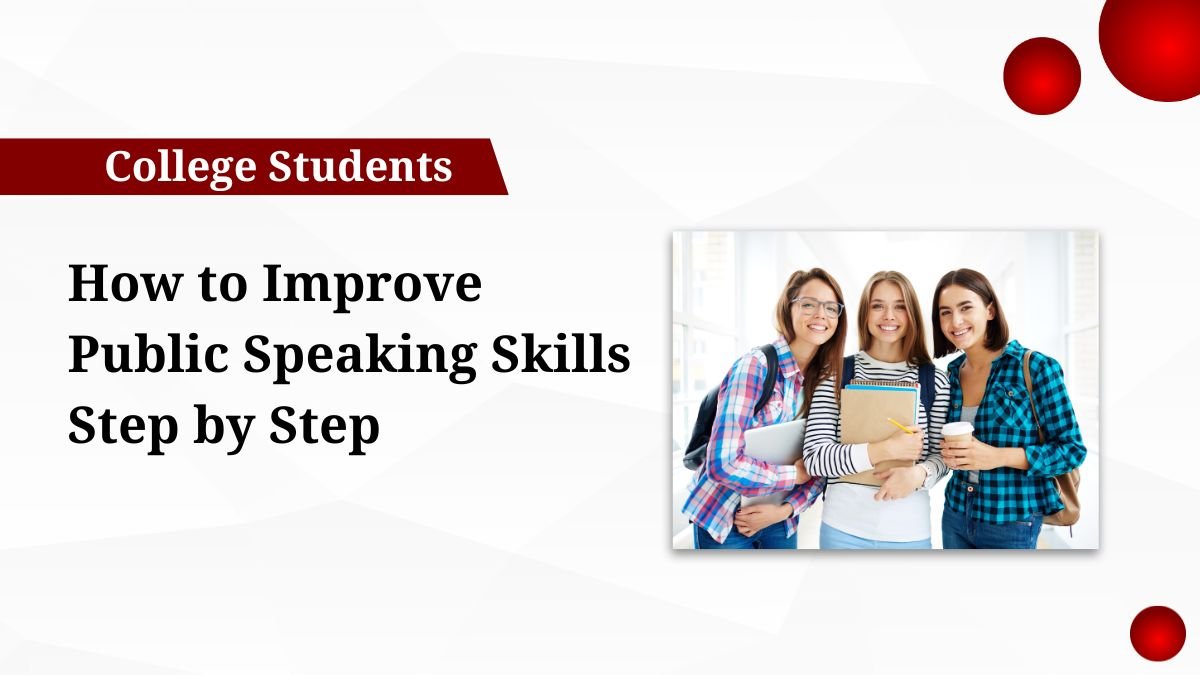English is a global language. Hence the ability to speak it offers many opportunities for academic, professional, and personal success. But not all students really start out with proper English skills.
Many of them have the greatest trouble having a vocabulary, grammar, speaking, or comprehension of more difficult texts. The best news is-there need not be a fluency in the language to be successful in school.
One can master English and give his academic performance an edge-together-with a set of strategies supplemented by daily practice. The following are the best methods to study for students who think their English is weak.
1. Set Clear, Small Goals
Don’t aim to master English overnight. Start with small, measurable goals like
- Learning 5 new English words a day
- Writing one short paragraph daily
- Watching a 5-minute English video and noting 3 new phrases
Why it works: Small goals feel achievable. They boost confidence and gradually build your language base.
2. Use Visual Learning Tools
If reading long texts is difficult, use videos, charts, flashcards, and infographics.

- Watch educational YouTube videos with subtitles.
- Use apps like Duolingo or Quizlet for vocabulary flashcards.
- Turn notes into diagrams or mind maps.
Why it works: Visual learning makes it easier to understand complex information and improves memory retention.
3. Translate to Understand – Then Rephrase in English
When reading something difficult:
- Translate it into your native language.
- Understand the meaning fully.
- Try to explain it back in basic English.
Example:
Original sentence—”Climate “change has a major effect on world ecosystems.”
Translated—[Get it in your home language]
Now say, “Climate change influences animals and the natural world in most of the world.”
Why it works: You get it well and exercise speaking English in a relaxed manner.
4. Record and Listen to Yourself Speaking
Practice talking by:
- Reading out loud from books or articles
- Recording your voice
- Listening to it and paying attention to your pronunciation or grammar
With practice, this makes you more fluent and confident.
5. Join a Study Group or Peer Learning Circle
Studying with friends makes you learn faster. Join a small group where you:
- Talk about things in English.
- Exchange notes
- Teach one another.
Even if your grammar is not great, using English regularly in speaking improves fluency.
6. Read Simple English Books or Summaries
Don’t start with complex novels or academic books. Instead:
- Select children’s books or graded readers.
- Read news summaries or short stories (such as BBC Learning English).
- Use bilingual books (English on one side, native language on the other).
Why it works: These add to your vocabulary in context and enhance your comprehension without frustration.
7. Use English in Daily Life
Make English a part of your daily routine:
- Switch your phone or browser to English.
- Label items at home in English (mirror, table, fridge, etc.).
- Speak English to yourself while going for walks or running errands.
Consistency is better than perfection. Even 10–15 minutes a day can reveal tremendous improvement within a month.
8. Break Down Difficult Texts
When reading English textbooks:
- Read section by section.
- Highlight main vocabulary.
- Refer to a dictionary (or Google Translate with care).
- Write a summary in your own words.
This assists English learning as well as comprehension of the material.
9. Listen to English Podcasts or Audiobooks
Natural understanding is developed through passive listening.

- Begin with slow English podcasts (e.g., “The English We Speak”).
- Listen on the go, while traveling or just relaxing.
- Mark interesting sentences or phrase structures.
Listening to the same podcast repeatedly enhances understanding.
10. Practice Writing Regularly
Don’t wait for grammatically perfect sentences. Simply begin writing:
- Maintain a daily journal in English.
- Write practice question answers.
- Utilize grammar check software like Grammarly.
Get a friend or teacher to check your writing every week.
11. Use Mobile Apps to Practice Daily
There are lots of free and paid apps to improve your English:
- Duolingo—Vocabulary and simple grammar
- Hello English—most popular among Indian users with lessons in Hindi-English
- BBC Learning English—Audio, video, vocabulary
- Grammarly Keyboard—Assists while typing English messages
Practice using these for 10–20 minutes a day.
12. Watch English TV Shows or Movies with Subtitles
Entertainment can be learning too.
- Begin with cartoons or sitcoms (e.g., Peppa Pig, Friends).
- Watch with English subtitles first, then without.
- Repeat scenes and repeat the dialogues out loud.
This assists with pronunciation, listening, and informal vocabulary.
13. Don’t Fear Mistakes – Learn From Them
All English specialists were once beginners. It’s alright to:
- Mispronounce words
- Forget grammar rules.
- Ask for meanings over and over again.
The point is persistence, not perfection.
14. Take Extra Help When Needed
In case school lectures are difficult, use
- Online courses (Coursera, Khan Academy, Udemy)
- Personal English tutors (face-to-face or online)
- Request teachers to clarify in straightforward language.
You are entitled to request assistance it’s learning.
15. Track Your Progress Monthly
At the end of each month, review:
- How many new words have you acquired?
- How your writing/speaking is better
- What skills are you still finding challenging?
Have a notebook or electronic file to think about and establish new objectives.
Conclusion
Starting English can be challenging, but using intelligent strategies, regular practice and confidence, any student can be better. The key is not to hesitate to commit persistent, curious and mistakes. You will perform well in the exam, talk more than an interview, or more confident, follow these tips step by step.
Remember: English is not a talent, it is a skill – and all skills are learned.







